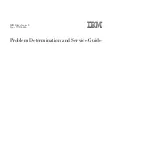
© National Instruments
|
2-1
2
Installation and Configuration
This chapter describes how to prepare and operate the PXIe-1066DC chassis.
Before connecting the chassis to a power source, read this chapter and the
Read Me First: Safety
and Electromagnetic Compatibility
document included with your kit.
Safety Information
Caution
Before undertaking any troubleshooting, maintenance, or exploratory
procedure, carefully read the following caution notices.
Protection equipment may be impaired if equipment is not used in the manner
specified.
This equipment contains voltage hazardous to human life and safety, and is capable of inflicting
personal injury.
•
Chassis Grounding
—The chassis requires a connection from the premise wire safety
ground to the chassis ground. The earth safety ground must be connected during use of this
equipment to minimize shock hazards. Refer to the
Connecting to Safety Ground and
section for instructions on connecting safety ground.
•
Live Circuits
—Operating personnel and service personnel
must
not remove protective
covers when operating or servicing the chassis. Adjustments and service to internal
components must be undertaken by qualified service technicians. During service of this
product, the mains connector to the premise wiring must be disconnected. Dangerous
voltages may be present under certain conditions; use extreme caution.
•
Explosive Atmosphere
—Do
not
operate the chassis in conditions where flammable gases
are present. Under such conditions, this equipment is unsafe and may ignite the gases or gas
fumes.
•
Part Replacement
—Only service this equipment with parts that are exact replacements,
both electrically and mechanically. Contact National Instruments for replacement part
information. Installation of parts with those that are not direct replacements may cause
harm to personnel operating the chassis. Furthermore, damage or fire may occur if
replacement parts are unsuitable.
•
Modification
—Do
not
modify any part of the chassis from its original condition.
Unsuitable modifications may result in safety hazards.







































